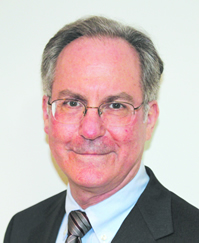Everything about the way you practice rheumatology changes on Jan. 1, 2017. The new payment formula for Medicare, the Medicare Access and CHIP Reauthorization Act of 2015, or MACRA, changes more than reimbursement rules. It changes the basic concepts behind physician reimbursement.

“We will have to re-evaluate the practice of rheumatology to adapt to upcoming changes in our compensation,” said Douglas Graham, MD, a rheumatologist in the Du Page Medical Group, a large multispecialty group west of Chicago, and part of the planning team that created a special symposium devoted to MACRA. “Which patients you see, how often you see them, what treatment you provide, what tests you order, may need to be organized in a different manner.”
At this year’s Annual Meeting, ACR will devote 90 minutes to Holy MACRA! How to Survive and Thrive in the New Era of MACRA, MIPS, and APMs on Sunday starting at 8:30 am in Ballroom C. Every rheumatologist and every practice manager at the Annual Meeting should attend, Dr. Graham said, because every rheumatology practice in the country will be affected by MACRA.
MACRA is not a compilation of tweaks and adjustments, or even a set of treatment guidelines, he said. MACRA completely changes the concepts and goals behind physician reimbursement under Medicare.
“Many practices are not currently organized with accountability for costs of care they provide or to achieve stated quality measures,” he said. “On January 1, we are going to change to ‘How do I evaluate and treat patients with a concern for expenses, to reduce waste and duplication and share in unspent savings? What quality goals must our practice achieve to maintain our economic viability?’
“Instead of focusing on the numbers of encounters, we will be in the field of population management. For many of us, the real message is that we will no longer be able to practice independently of other groups of physicians and providers. The entire philosophy behind physician reimbursement is going to change.”
MACRA replaces the Sustainable Growth Rate (SGR) method used by the CMS to control physician spending under Medicare since 1997. The ACR, working with other medical societies, argued long, hard, and successfully that SGR was bad for patients, bad for physicians, bad for Medicare, and bad for the country. The next step requires rheumatologists to understand and adopt their own practices to survive and thrive under MACRA.
Speakers will discuss the transition to MACRA and introduce some of the concepts and practices that will help rheumatologists navigate the financial changes as they shift focus from providing services to demonstrating outcomes.
Physicians have never before been this financially accountable for their treatment decisions, Dr. Graham said. MACRA imposes that accountability. And because MACRA was crafted as a budget neutral system, the only way to improve revenue at the practice level is to demonstrate savings in some other part of healthcare system and achieve or surpass quality measures.
Most rheumatologists, like most other physicians, will fall by default under the new Merit-Based Incentive Payment System (MIPS). MIPS requires data reporting and more active physician involvement than the Physician Quality Reporting System, Meaningful Use, and other Medicare incentive programs it replaces. Participating in the ACR’s RISE Registry (Rheumatology Informatics System for Effectiveness) can help practices maximize scores and payments.
All physicians will have composite sources based on Quality, Resource Use, Clinical Practice Activities, and Advancing Care Information, and these scores will be available to the public. Physicians and practices should be talking with their information technology providers and other vendors about the changes required to meet the new MIPS reporting requirements and maximize their scores.
Physicians in larger group practices may eventually migrate to an Alternative Payment Method (APM). There are few, if any, successful APMs in the marketplace today, Dr. Graham said, but an APM specialist will outline what to look for — and look out for — when considering APMs in the future.
“This symposium is the work of multiple ACR committees and skilled individuals who have addressed MACRA in a very comprehensive manner,” he said. “The organizers of the meeting recognized the value of this presentation to the whole rheumatology community. Attendees will come away with a competitive advantage with the most current information on MACRA. The planning committee’s primary goal is to give us all the best chance to succeed under MACRA. What physicians do beginning January 1, 2017, may affect their compensation in 2019.”
BUSINESS/ADMINISTRATION TRACK
Holy MACRA! How to Survive and Thrive in the New Era of MACRA, MIPS, and APMs
8:30 – 10:00 am Sunday • Ballroom C


